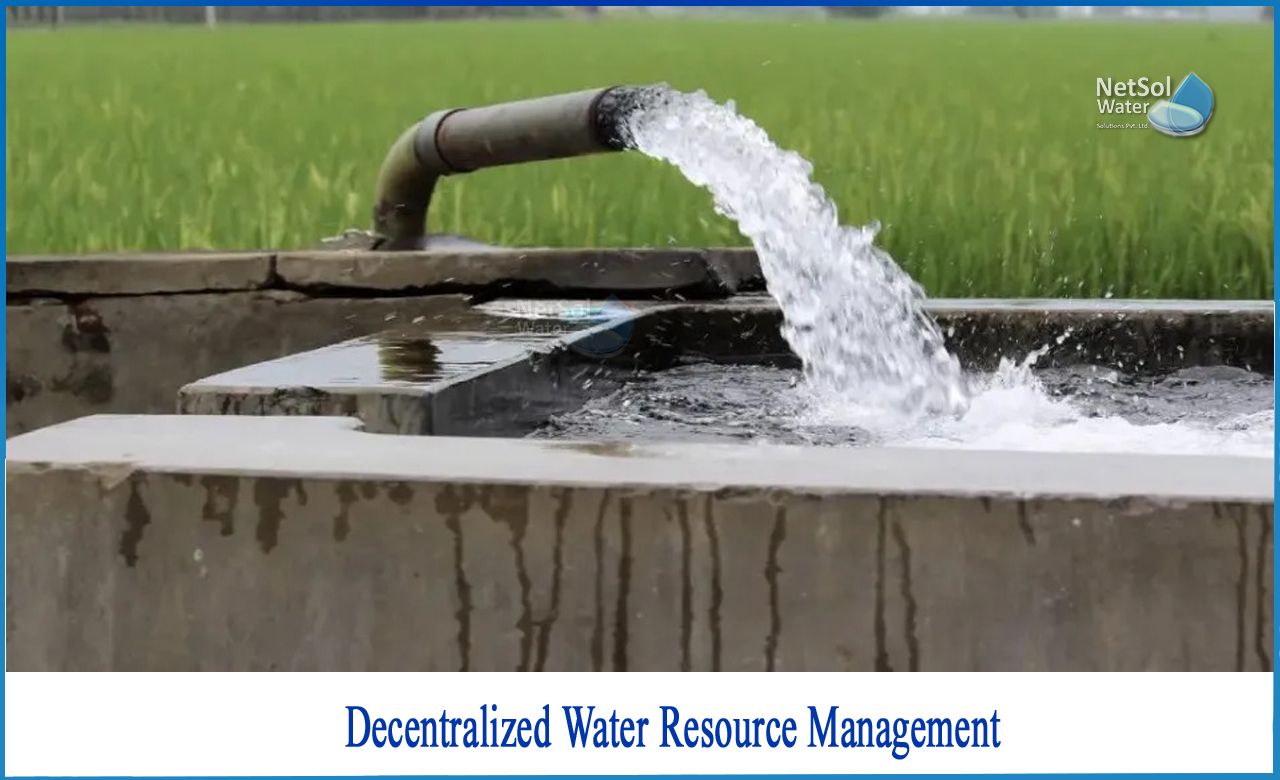Overview
Decentralization is the transfer of functions and duties from the Central Government to elected subnational authorities. Greater decentralization in the water sector has resulted in democratization across sectors in water resource management. Local communities and rural local governments play a critical role in developing a water model for sustainable development.
Why is decentralized water management system required?
Managerial-institutional issues are those concerning administration and institutions. The main issue is the lack of a universal definition of community. The presence of multiple interpretations resulting from different points of view renders the definition itself confusing and hence hinders our comprehension of a community. Furthermore, water management plans are developed outside of user communities, they are frequently front-loaded with technical and capital overload, and they always become incompatible with community-based usage. This is exacerbated by implementation errors caused by insufficient delegation of operations, limited potential for effective community engagement, and gram panchayats' inability to manage water resources.
Success Principles
Many Gram Panchayats have been collaborating with rural communities on decentralized water management schemes. They have achieved success in water resource decentralization by employing the following principles:
1: Inclusive community engagement guarantees that all households, especially the poorest and most marginalized, contribute to the program. The approach encourages positive efforts to guarantee that women and underprivileged people are included in asset and process management.
2: Capital and maintenance expenditures are shared by the whole community.
3: People take responsibility from the start to develop consensus, mobilize local contributions, supervise construction, and oversee operations and upkeep.
4: The establishment of a corpus fund and a maintenance fund ensures in-built financial security.
The Difficulties of Decentralized Water Management
The existing disparities and power dynamics among village communities are significant obstacles. Gender, caste, and class disparities are significant hurdles within village communities.
Women must be involved in the planning process and share their thoughts because they are the major victims.Women have frequently taken the lead in rallying communities and completing the work with the greatest advantage. Women's engagement, however, is contingent on the character of the community. There has been evidence of persistent control in the decision-making process in some circumstances. To address such inequity, other initiatives, such as building alternate platforms to connect with women, must be implemented.
Another impediment is the rural-urban divide and its accompanying expenses.Rather than distinguishing between rural and urban areas, distinctions should be established based on the prevalence of local sources. Decentralized and distributed water systems based on local water sources are cost-effective, lowering expenses while simplifying the rural-urban gap.
The Next Steps
It is critical not to become overwhelmed by the magnitude of the situation. Different entities must ensure that they exert maximal effort. Decentralized water management policies must empower and govern the gram panchayat, since it is the locus of governance and control.
Netsol Water is Greater Noida-based leading water & wastewater treatment plant manufacturer. We are industry's most demanding company based on client review and work quality. We are known as best commercial RO plant manufacturers, industrial RO plant manufacturer, sewage treatment plant manufacturer, Water Softener Plant Manufacturers and effluent treatment plant manufacturers. Apart from this 24x7 customer support is our USP. Call on +91-9650608473, or write us at enquiry@netsolwater.com for any support, inquiry or product-purchase related query.



